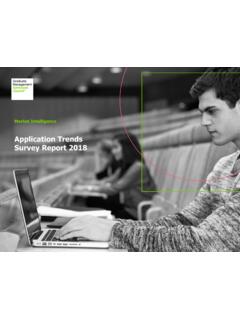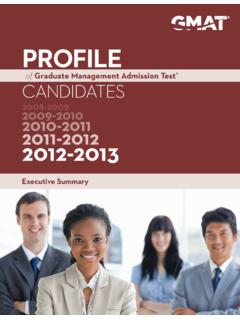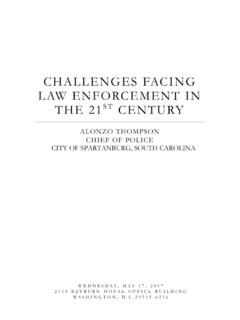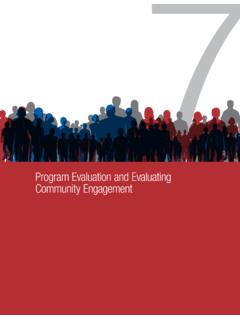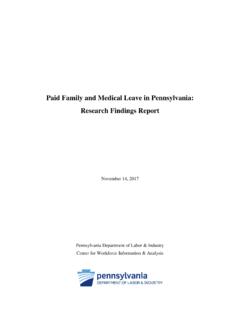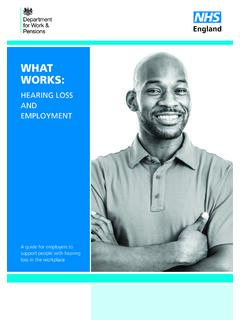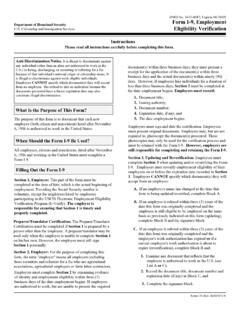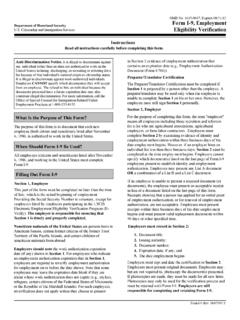Transcription of The Impact of COVID-19 on the School Graduates
1 The Impact of COVID-19 on the Hiring of Business School Graduates Corporate Recruiters Survey 2020. September 21, 2020. IN PARTNERSHIP WITH. Access report, webinar, blog, and infographic Contents 1. Executive Summary 2. Skill Demand 3. Hiring Projections 4. Salary Trends 5. Appendix 6. About a) Graduate Management Admission Council (GMAC). b) Methodology and Respondent Profile c) Contributors and Contact Information 2020 Graduate Management Admission Council (GMAC). All rights reserved. The turning of tides for the global economy . The global economic outlook Throughout history, economic hardships reverses its course to pessimism and have created windows in which uncertainty in a matter of months exceptional employees and leaders are widely available for a limited This crisis like no other will have a time .visionary leaders can make the recovery like no other.
2 (IMF, 2020, June 24). most of it, preparing the ground for post-crisis recovery and growth.. Claudio Fern ndez-Ar oz (2020, May 1). Now Is an Unprecedented + % Opportunity to Hire Great Talent, Harvard Business Review (IMF, Jan 2020). (IMF, Jun 2020). Global real GDP growth, 2020, year-on-year percentage change 3. Candidates with graduate management education The value of . tend to have greater ability to analyze problems, define graduate strategies and communicate with peers and superiors. - Recruiter from a Fortune 100 organization in the Technology sector management education from Well rounded candidates with relevant past experiences, and demonstrated achievement both corporate professionally and academically. - Recruiter from an organization in the Consulting sector recruiters'. perspectives Breadth of business knowledge and a mindset that emphasizes delivering results coupled with personal attributes like ambition and desire to learn/grow.
3 - Recruiter from a Fortune 100 organization in the Technology sector Q: What are the reasons, if any, someone with a graduate management education is Ability to work in ambiguity, stronger analytical more appealing to your organization than acumen, and leadership. candidates without this educational background? - Recruiter from a Fortune 500 organization in the Finance sector 4. Executive Summary The report is organized in three primary sections Introduction comparing Wave I and The Graduate Management Admission Council (GMAC) conducts the Annual Corporate Wave II responses for skill Recruiters Survey (CRS) to provide vital data for employers and business schools in demand, hiring projections, understanding trends and insights on hiring, salaries, and skills of MBA and business master's Graduates . The survey is administered in partnership with the MBA CSEA, and salary trends of EFMD, and Highered and career services offices at participating graduate business graduate management schools worldwide.
4 Talent for the class of 2020. As data collection for the 2020 CRS report was nearing a conclusion in mid-March, the COVID-19 outbreak was unfolding. On March 11, the World Health Organization (WHO) declared the outbreak as a pandemic. Given the disruption caused by the Also, an additional set of data pandemic, GMAC determined to undertake a second wave of data collection to and charts are available in the provide more relevant insights about the Impact of COVID-19 . appendix to provide a deeper One of the defining characteristics of the pandemic had been the persistent understanding of various uncertainty as to how and when situations would come to normalcy. This also dimensions of recent trends affected the ability of businesses to make informed decisions and projections. In this context, the survey still gathered 232 responses from corporate recruiters captured by Wave II data.
5 In Wave II (June 17-July 17, 2020). Wave I (February 17-March 17, 2020) of the survey received 712 responses. More details are available under the methodology section along with the respondent profile. 5. Executive Summary The top three reasons recruiters report for confidence in b- School 's Skill Demand: Stability in Times of Disruption ability to prepare Graduates to be successful in their organization were: One of the key takeaways from the research is that even as the pandemic continues to shake the global economies and shape the future of work, the confidence of corporate recruiters in the skills and abilities of graduate strategic thinking management talent remains strong. communication skills During Wave I, 90 percent of respondents indicated they were highly confident or versatility (see chart). confident about the ability of graduate business schools to prepare students to be successful in their organization (see chart).
6 In Wave II, this number has slightly They again remained stable between reduced to 87 percent. To put this unwavering confidence in context, we should Wave I and Wave II. However, one of look at the shift in the perception of the global economy. Even before the the most noteworthy shifts in needed pandemic, concerns were emerging about the strength of the global economy, skills was in the ability to navigate the which only deepened subsequently. In Wave I, only 33 percent of respondents described the state of the global economy as very strong or strong as compared challenges of technological disruption, to just 7 percent in Wave II (see chart). This suggests that even in a weak global which was identified by more than economy, confidence in a business School 's ability to prepare future managerial two-thirds of the respondents as talent remains steady.
7 Becoming more important as a result of COVID-19 , followed by strong communication skills (see chart). 6. Executive Summary Hiring Projections: The Optimism of Rebound in 2021. The global financial crisis of 2008-09 resulted in a significant loss of jobs at all levels. In subsequent years, as the economies recovered, many organizations faced intense competition for attracting and retaining talent (Deloitte, 2012). This time employers seem to be cautiously optimistic in maintaining their commitment to top talent and they are more likely to adopt a wait and see approach. Only 8 percent of respondents note that they are rescinding job offers to graduate management talent from the class of 2020 and four times as many report delaying start dates (see chart). Hiring of b- School interns also seems steady in Wave II as more recruiters adopt online/virtual experiences.
8 Most recruiters (61%) report plans to keep their headcount stable in 2020, compared to 17 percent who will decrease headcounts and 22 percent who plan to increase it (see chart). Looking into the hiring projections for 2021, there are prospects of a recovery in demand for MBA and business master's candidates. In Wave II, the proportion of recruiters reporting plans to hire MBAs in 2021 (89%) is at a similar levels to Wave I (92%) (see chart). 7. Conclusion Executive Summary MBA and business master's Graduates are not immune to the Salary Trends: Premium Endures Under Pressure scale and scope of the uncertainty In the pandemic context, compensation is under pressure at all levels as companies caused by the pandemic. However, focus on operational sustainability, and the demand and supply of talent shifts in the findings of the 2020 Corporate favor of employers.
9 And yet, for the class of 2020, most recruiters are indicating plans to honor their compensation promises, and only a few are resorting to a Recruiters Survey suggest that reduction in salaries, benefits, or bonuses (see chart). employers remain confident about the value of graduate management Also, the compensation premium commanded by business management Graduates is holding steady. At $115,000, the median salary of MBAs is 75 percent more talent, which is also apparent in than those with a bachelor's degree in Wave I, which slightly decreased their relatively steady hiring to $105,000 in Wave II (see chart). The compensation premium is even more projections and salary trends. In apparent for Fortune 100 companies or the big-three industries that hire the most MBAs consulting, finance, and technology (see chart).
10 For example, at $145,000, sum, the skills and abilities the median salary of MBAs in the consulting industry is twice that of bachelor's acquired by graduate management degree holders in Wave I. In sum, the responses of the corporate recruiters suggest talent during their business School that salaries for graduate management talent are relatively less likely to soften during the pandemic. experiences make them a valuable asset in supporting organizational recovery and resiliency. 8. Skill Demand This section presents survey findings related to skill demand for recent business School Graduates and compares Wave I and Wave II data on the following key dimensions: Recruiters' confidence in b- School 's ability to prepare students to be successful Reasons for confidence in b-schools'. ability to prepare Graduates Shift in importance of skills due to COVID-19 .
